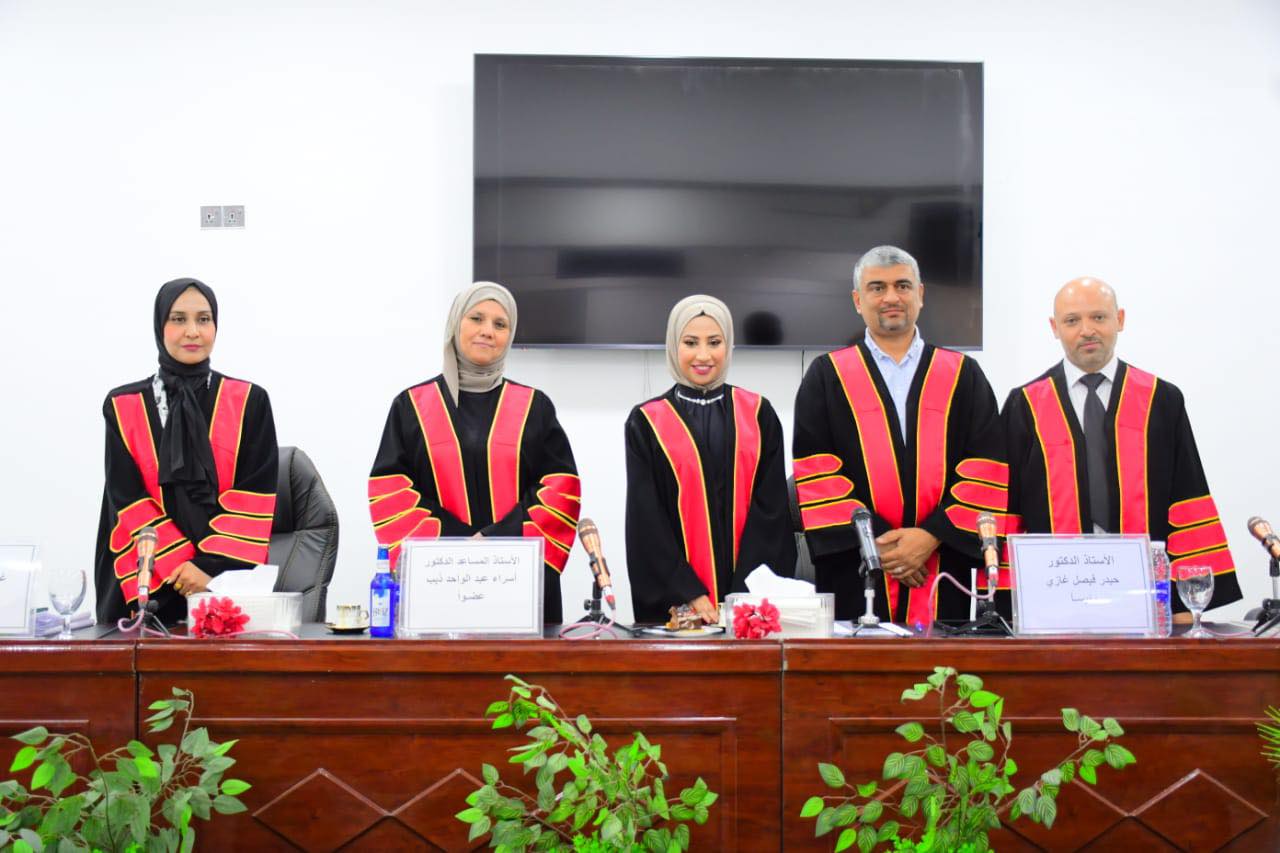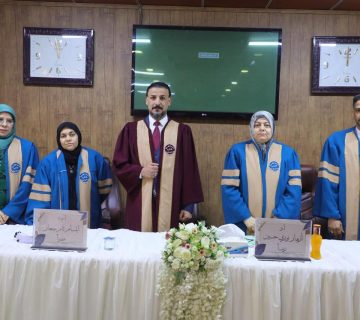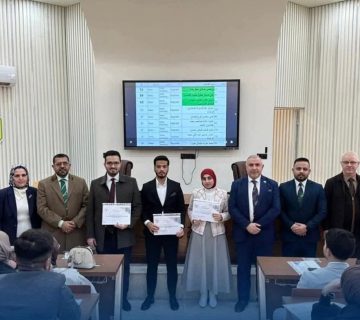The Department of Medical Microbiology at the College of Medicine, Al-Qadisiyah University, discussed the master’s thesis of student Banin Muhammad Ali Hussein, under the supervision of Professor Ibrahim Abdul Majeed Mustafa.
The thesis aimed to investigate the effect of genetic polymorphisms (SNPs) in IL-9 rs731476 and IL-13 rs1800925 on the susceptibility to chronic rhinosinusitis (CRS). It also aimed to assess whether their serum levels have any impact on disease pathogenesis, patient resistance to treatment, and progression to the chronic phase of the disease.
The most important conclusions were that the distribution of the CT genotype variant of IL-13 was significantly lower in patients without nasal polyps compared to the healthy group. However, it appeared to be significantly higher in the polyp group compared to patients without nasal polyps.
The most important recommendations are that these cytokines play a role in the progression, persistence, and resistance to conventional therapeutic agents. Therefore, they open the door to promising biological therapeutic interventions. IL-9 can also be considered a candidate for diagnosis and follow-up. , taking into account that these data need further biological studies to confirm them.
The effect of genetic polymorphisms (SNPs) of interleukin-13 and interleukin-9 and their serum levels on the response of patients with chronic sinusitis to treatment. A master’s thesis




No comment